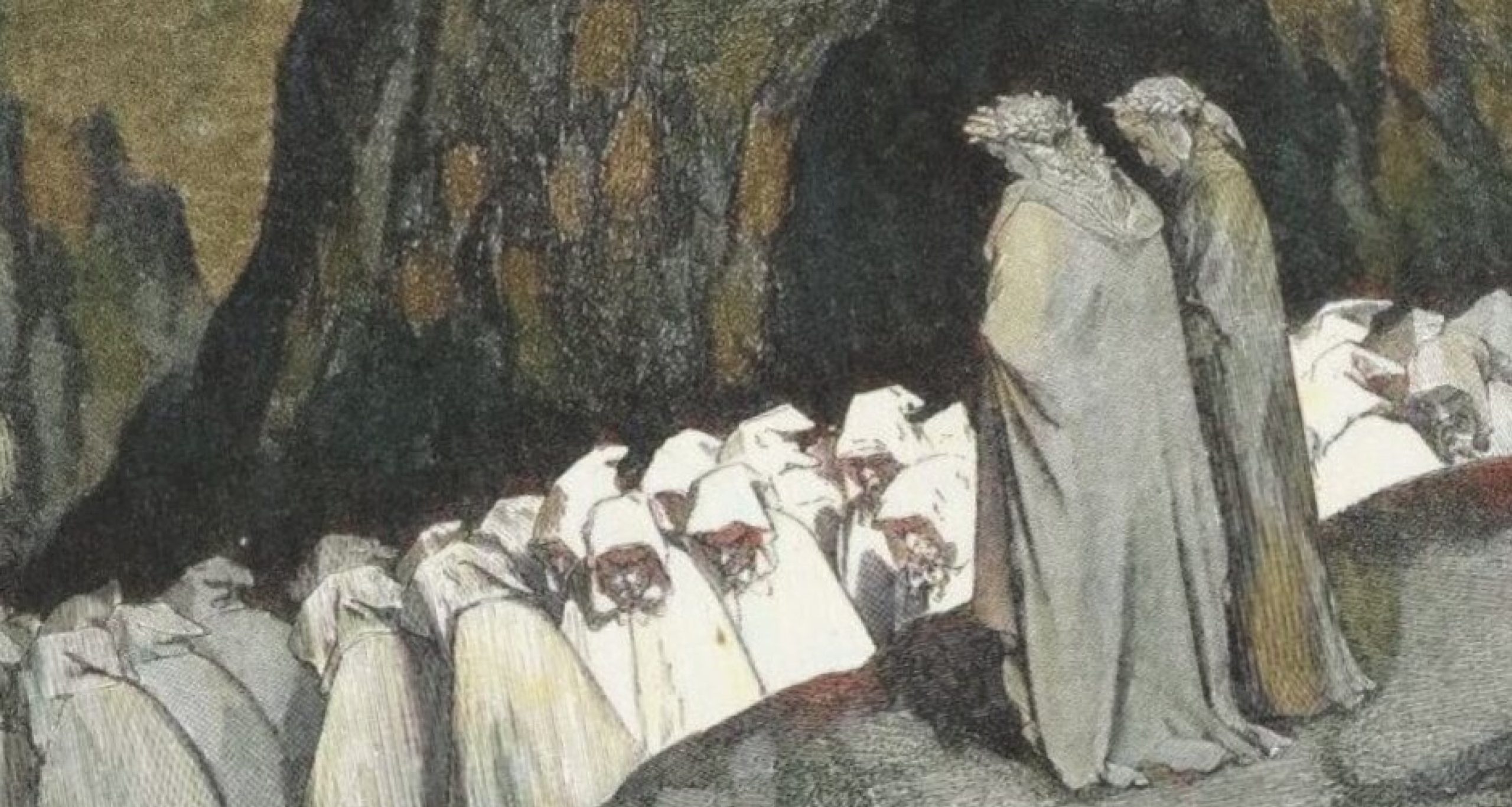For many of us who grew up in the Westernized Christian faith, the seven deadly sins were among the vices we were taught to avoid. The dictation of such temptations are not unique to the western world, although the modern interpretation of these vices began as “Eight Evil Thoughts”. In other traditions, vices are known to be considered thieves or poisons.
A simple definition of vice is that it is the defilement of spirit; it hinders the heart from achieving growth and self-development. Vice is a merely a distraction, and at times a short-cut, towards the achievement of material success, at the expense of the self and others. In classical western texts, the deadly sins are as follows: lust, gluttony, greed, sloth, wrath, envy, and pride. Rather than be seen strictly as “sins”, they are akin to character flaws that, if developed into a habit, project one onto a path of ignorance, suffering, and spiritual isolation. To remedy these classical dilutions of character, the seven capital virtues were established to lead Christian believers onto a path of piety. Such virtues were: chastity, temperance, charity, diligence, patience, kindness, and humility. Each one countering (in order) the list of deadly sins.
Within the tradition of the Astrum Temple – I hold accountable a list of vices that dim the light of the spirit. These 7 Sins of the Earth are included in the theology of my faith. Like other interpretations throughout time, these seven sins are regarded as personal flaws. However, with each vice exists a virtue to counteract and redirect the soul back to God.
The 7 Sins of the Earth
The definition of sin generally has many meanings. In light of our pursuit for knowledge, the concept of sin translates to “actions of an inhumane nature”. These are a list of wrongdoings that promote suffering and imbalance within the self and to others. Rather than being condemned “to hell” in the classical sense, these vices trap the spirit within the grip of ego – exemplifying the self at the expense of others. This in turn creates “hell on earth” – a vicious cycle of suffering, confusion, and stagnation.
Ignorance
Think about the root cause of suffering. In many, if not all cases, the origin of “evil” is found within the sin of ignorance. Coupled with the experience of fear, our primal instincts are to resist, condemn, or avoid what causes us to feel unsafe. Yet, with the gift of intellect as children of God, we must exercise our consciousness and rise above the seducing bliss of ignorance. For when we exist within a state of unknowing and are complacent in our nescience, despite actual fact, our spirits fester and experience a decay of spiritual growth. Ignorance is not bliss, but rather the root of all evil-doing. For in our ignorance, we cause pain and harm, out of fear.
Neglect
Following ignorance comes neglect. Be it the neglect to educate oneself or, at large, invalidate the humanity of others through the lens of ignorance. This ravine of vice is easy to slip into, its as simple as “turning a blind eye” to the needs of others (because their suffering might not impact you personally) and by accepting the status quo of wrongdoing to marginalized peoples or situations because, in the lull of ignorance, we react with blind faith to old-guard traditions that fail to reflect the realities of the current world.
Waste
The sin of waste is a moral inadequacy that combines the vice of gluttony and greed. Unfortunately, in this current age, no one is immune to the issues of waste. As a society, we’ve been conditioned to the materialism of global capitalism, be it overindulgence of resources that far surpasses our needs, to complacency with unsustainable deforestation, trophy hunting and poaching, the hoarding of wealth, or the philosophical waste of one’s abilities and talents. Waste creates a deficit of our resources, which in turn exasperates our unhappiness as a global community. As stewards of the Earth, we must resist the temptations of wasteful practices.
Cowardice
From waste we transition into cowardice. When we are set in our ways, choosing to ignore our problems, we fall into cowardice. We attack those who threaten our status quo. We dig deeper into the trenches of the ego, finding fault in others, but never the self. The further into ignorance, the faster we fall into cowardice; our actions reflect deep-seated fear and apathy. If we choose not to seek help when help is needed or available, we become lost in the shadows of despair and fear.
Deceit
On the heels of cowardice comes deceit. Rather than facing the consequences of our actions, we turn to dishonesty and lies. We shift the blame, firmly worshiping the ego within ourselves, bending to its every whim. In so, we become liars, not only to the world, but to ourselves. We have fallen so deeply into our ego that truth becomes a mountain of impossibility. This phenomena reflects the principle of the Sunk-Cost Fallacy, the difficult reality that your situation or mind-set is no longer benefiting you. But rather than change, you keep investing in a dead-end because the idea of “starting over” is daunting. This is where we experience the sin of cowardice, again.
Cruelty
From the ill-bearing fruits of deceit, one cultivates the habit of cruelty. The world beyond our stunted sense of self and the scope of our ego becomes disposable, a sacrifice upon the altar of our selfish desires. People, aid, resources, talents, and emotion are just a means to an end. We take with force and with such disregard for others, fattening our ego to the point of grotesque idolatry. Cruelty begets abuse; and in our abusive ways we lay claim over the dominion of others as the ego usurps the throne of the mind.
Hate
And finally, through our acceptance of cruelty, we fall into the pit of hatred. This grave sin is the antithesis of Christ, a prolific vice that has spread like disease around the world. It is a global phenomena rooted in ignorance, the first sin of humanity. In our hatred for others, the world, and even ourselves, we blind ourselves with the daggers of anger. Hate breeds wrath, revenge, destruction, war, and atrocity. It is the lowest circle of hell, a true abyss of torment and suffering, not only for the self, but for every soul you encounter. It is here that the ego lords over the mind as one’s own anti-Christ.
The 7 Remedies of Virtue
These list of virtues are categorized in two groups. The first group encapsulates the 3 Esoteric Virtues; the celestial imprints of our divine parentage. The second group represents the 4 Exoteric Virtues; qualities upheld in the house of humanity – laws of conduct for the betterment of humankind. Listed in order are the virtuous remedies to the 7 Sins of the Earth; in order to break the grip of these vices, we must employ the redemptive keys of virtue.
Wisdom
The first of the three esoteric virtues, wisdom is regarded as the champion of morality. It encapsulates varying degrees of action to combat the vice of ignorance. Wisdom is the divine intuition of our good-will and our harmful ego. The more we attune ourselves to the inner and outer temples of existence, through experience, education, observation, and association with others, we cultivate growth in our minds and soul; we mirror the expansive glory of the universe. With wisdom and sound judgement we discern truth from folly – acting with interest for equity and fairness in the world.
Advocacy
From the root of wisdom, we mature beyond the scope of the self and reflect the virtue of advocacy. We attune to our Christ-like natures, creating space and speaking for those without a voice, empathetic for the forgotten in our community, and uplifting the needy to sit with us at the table of acceptance. Through advocacy we unmask the facade of neglect.
Temperance
With advocacy, we progress into the virtue of temperance. In our wisdom and care for others we foster restraint, a moderation of desire to live beyond our means; the quieting of the indulgent temptations of society so that our actions result in minimal harm to the Earth and humanity. It is with temperance we reduce the prevalence of waste, remedy the epidemic of exploitation, and shift our focus away from materialistic distractions in our pursuit for peace and love.
Fortitude
The first of the exoteric virtues, fortitude is the foundation of action within the house of humanity. The mastering of temperance allows the self to stand grounded in the realism of true strength. In our fortitude, we remain strong against the tides of injustice. We realize the importance of a healthy spirit, unwavering in the face of truth, even if growth means admitting falsehoods of our own character. This is the definition of bravery, to defy self indulgent patterns of individualization, fear-mongering, and blind obedience.
Integrity
In our pursuit of fortitude, we strengthen the bonds of our integrity. We move past the desire for lies and deception, understanding those paths lead to the creation of our own hell. Our integrity fosters respect, not only for ourselves, but for every soul we encounter in our mortal journey. We graciously bestow dignity unto others, even if we do not understand their path.
Mercy
From the wisdom of integrity, we experience the quality of mercy. Just as we wield dignity in the face of deceit, so do we act with mercy when battling the horror of cruelty. Mercy extends beyond the care and protection of the abused, it aims to remedy the cause. In so sheltering those tormented, we advocate for treatment of the tormentor. Mercy is the virtue of change, so that acts of inhumanity are but whispers in our future.
Benevolence
It is through the grace of mercy that we nurture the gift of benevolence. Uplifting those oppressed and victimized by vice is the truest form of Christ. In our kindness and generosity we crack the shackles of hate that so viciously clutches at the heart of humanity. Hate begets hate, and through benevolence, one can tame the beast of loathing.

